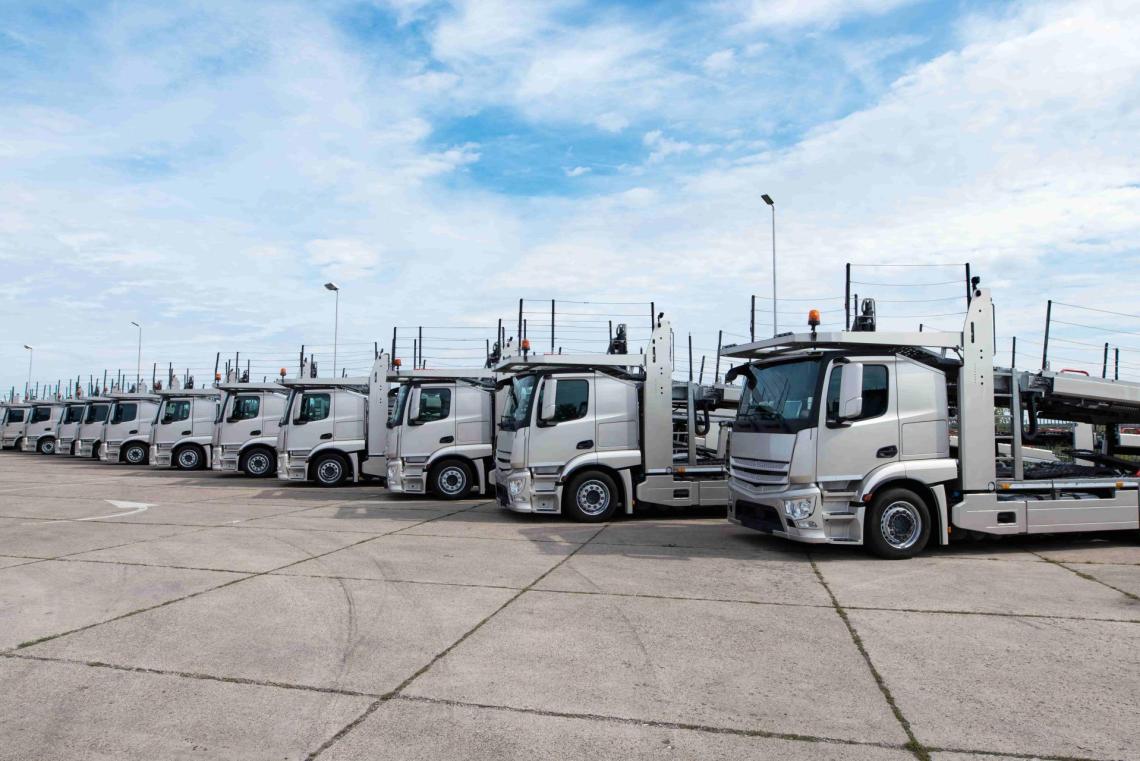The European used car market is a dynamic and diverse sector, driven by factors such as consumer preferences, environmental regulations, and cross-border trade. As an increasing number of consumers and businesses turn to second-hand vehicles for affordability, sustainability, and convenience, the market has experienced notable growth.
A fragmented but large market
Europe is home to a variety of national markets, each with its own preferences, taxation systems, and vehicle regulations. Some countries like Germany, the UK, and France are major players in both the sale and import of used cars. Smaller markets such as the Baltic countries and Eastern Europe are known for importing large volumes of vehicles from Western Europe.
The European Union helps to harmonize trade policies. However, each member state still has its own rules. This fragmentation makes it necessary for importers to navigate a patchwork of rules regarding emissions, safety standards, and taxation.
Thanks to its authorized economic operator status, Arval Trading manages export customs formalities for none EU customers internally and facilitate your business.
Demand for affordable and sustainable vehicles
The demand for affordable used cars is strong across Europe. Many buyers are opting for second-hand vehicles instead of new ones to reduce costs. Germany, as one of the continent's largest car markets, is a key exporter of used vehicles, supplying neighboring countries with affordable options.

At the same time, environmental concerns play an increasing role in consumer decision-making. Many European cities have introduced low-emission zones (LEZs), where vehicles must meet specific emission standards.
This has pushed some consumers to sell or trade-in their older, high-polluting cars in favor of allowed options. Countries like Belgium have seen an uptick in demand for hybrid and electric vehicles (EVs) in the used car market.
Europe has some of the strictest environmental regulations globally, particularly concerning car emissions. The EU Emissions Standards, such as Euro 6 for passenger cars (Euro 7 in 2030), set limits on pollutants. These limits apply to both new and used vehicles.
These regulations are changing the second-hand market. They lower the demand for high-emission vehicles and encourage imports of cleaner, low-emission cars.
Countries like Italy and Lithuania offer different incentives. They help fund the purchase of BEVs and the installation of charging stations. It has further impacted the used car market. When buying a used car, you can already look for electrified vehicles as the offer increases.
These schemes incentivize consumers to trade in older vehicles. Many of the scrapped or traded-in vehicles are then exported to countries with less stringent environmental rules, further fueling the cross-border trade.
Importations between European countries
Cross-border trade is a fundamental part of the European used car market. Because of price differentials, tax incentives, and varying regulations between countries, importing used vehicles has multiple advantages for dealers.
Some specific trends include:
- Western to Eastern Europe trade: countries in Eastern Europe are major importers of used vehicles. These cars are usually cheaper than new ones. They provide good choices for people with less a smaller budget.
- Tax and VAT variations: the taxation and Value-Added Tax systems for vehicle imports vary significantly across Europe.
- Regulations and compliance: importers must comply with both national and EU-wide regulations when bringing cars across borders. This often involves ensuring that vehicles meet the emissions and safety standards of the destination country. Some Eastern European countries, for example, accept older vehicles that may no longer be road-legal in others, creating a secondary market for high-mileage, older models.
On MotorTrade, you will find used cars coming from 17 different countries in Europe. Thousands of used cars are published each week. Many types of cars are available. Rest assured that you will find what you need.
Challenges of Importing Used Cars
While there are significant benefits to importing used cars in Europe, there are also challenges that importers face.
Importing a vehicle usually needs several documents. These include proof of ownership, customs declarations for none EU customers, or proof that the car meets local road and emissions standards. Each country has its own paperwork requirements, which can be time-consuming to navigate.

The fluctuating value of the euro and other currencies can influence the cost of imported vehicles. For example, when the exchange rate is unfavorable, the cost of purchasing and importing a vehicle from another country increases.
Buyers importing used cars often worry about the car's history. They want to know about accidents, past owners, and any possible tampering with the odometer. Fortunately, services like the European vehicle databases provide greater transparency in this regard. On MotorTrade, if the car’s service history is available, you will see it directly on the platform.
Conclusion
The European used car market is a complex system. It is influenced by the continent’s varied economy, environmental rules, and consumer needs.
Cross-border trade in used vehicles offers chances for affordable cars. However, it also brings multiple challenges. One major challenge is following different regulations and national policies.
If you are looking to import used cars in Europe, understanding the intricacies of different markets and their respective regulatory frameworks is crucial. Whether your customers are businesses or individuals, staying informed is important. Using online platforms can help you make successful transactions in this changing market.



